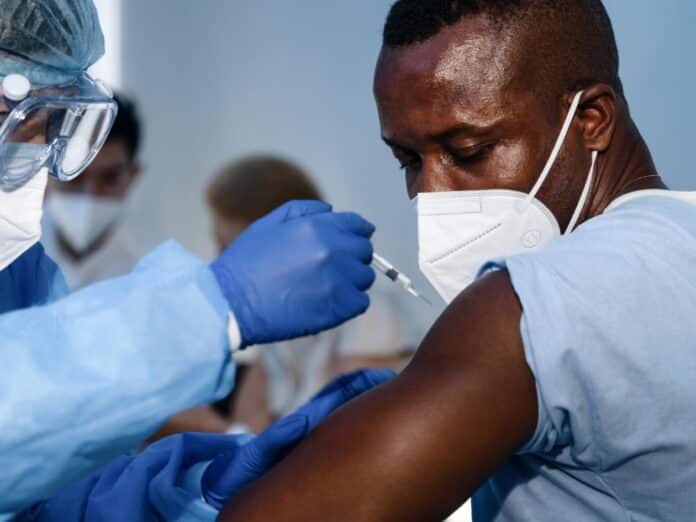In a collaboration with the NHS Dorset Clinical Commissioning Group (CCG) and support from the Dorset Race Equality Council (DREC), Bournemouth University has completed a study on ‘Covid-19 vaccine uptake, hesitancy and barriers among the ethnic minorities in Dorset’ [1]. The study explored the perspectives of community health ambassadors from ethnic minorities in Dorset on (i) the impact of COVID-19 (ii) provision of health care services during the pandemic (iii) COVID-19 vaccine uptake level, and (iv) challenges and barriers to vaccine uptake. Six interviews were conducted with community health ambassadors affiliated with the DREC.
Mental health problems were reported as the key impact of COVID-19 among the ethnic minority communities in Dorset. Participants stated that COVID-19 infection, losses of jobs and income, and disruption in their tightly knit community culture could have triggered mental health issues among these community groups. Many of them were unable to use remote health consultations due to their lack of technical knowledge, equipment and education level. However, younger members were reported to have used it frequently and efficiently.
Initially, there was a greater level of suspicion and reluctance towards the COVID-19 vaccine in these communities in Dorset coupled with rumours and misinformation. However, as more ethnic minority community members, including the influential leaders (such as Imams of the Muslim community), took the vaccine and conveyed positive messages after vaccination, people had started to accept it. Ethnic minority community groups also invited doctors and other health care professionals from their community to present factual information regarding COVID-19 and its vaccine-related issues which had encouraged people for vaccination.
Participants pointed out three key challenges for the COVID-19 vaccination; (i) the lack of trust and confidence in government messages and the vaccination campaign, (ii) rumours and misinformation, and (iii) a lack of clarity regarding the reasons behind the increased risk of COVID-19 in ethnic minority community members. This study identified an urgent need for evidence-based interventions to improve trust and confidence in government health messages and health initiatives (such as the COVID-19 vaccination) in these communities.
The study team comprised Dr Nirmal Aryal (Principal Investigator), Prof Vanora Hundley, Prof Edwin van Teijlingen, Dr Rebecca Edwards (all from Faculty of Health and Social Sciences), and Sara Bonfanti (Senior Insight Lead, NHS Dorset CCG). The previous work from this team for the project ‘The Dorset Recovery Insights’ informed to shape this study [2].
References
- Aryal N, Hundley V, van Teijlingen E, Edwards R, Bonfanti S. (2021) COVID-19 vaccine uptake, hesitancy and barriers among the ethnic minorities in Dorset. Bournemouth University: Bournemouth, United Kingdom.
- Aryal N, Hundley V, van Teijlingen E, Edwards R, Bonfanti S. (2020) The Dorset Recovery Insights. Bournemouth University: Bournemouth, United Kingdom.
PLEASE SUPPORT US FOR JUST £2 A MONTH







